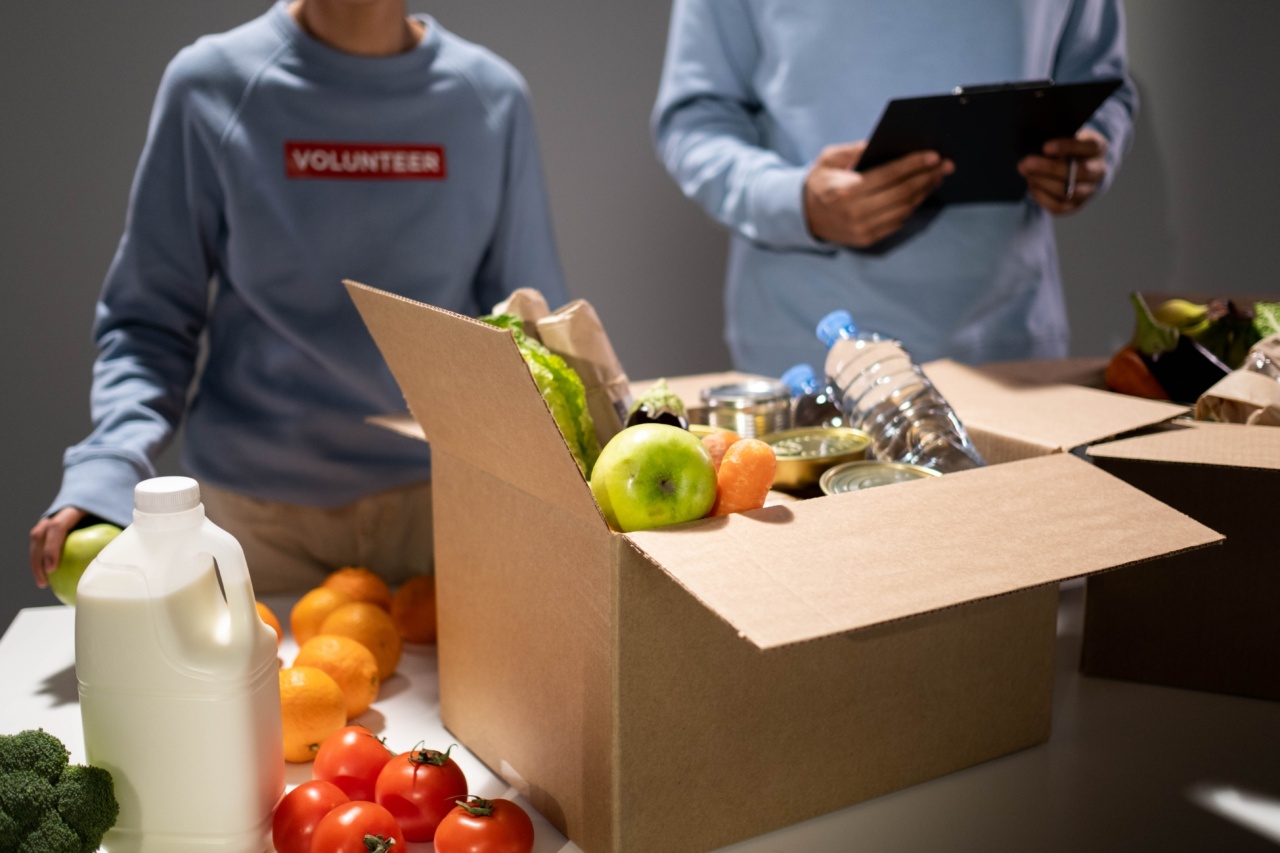When it comes to preventing diseases like breast cancer, diet plays a crucial role. Numerous studies have shown that consuming a diet rich in fruits and vegetables can significantly reduce the risk of developing breast cancer.
In fact, research suggests that incorporating these nutritious foods into your daily routine can lower the risk by as much as 40-60%. This article will explore the specific ways in which fruits and vegetables can help decrease the risk of breast cancer.
Fighting Oxidative Stress with Antioxidants
Fruits and vegetables are packed with antioxidants, which play a vital role in maintaining cellular health. Oxidative stress occurs when there is an imbalance between the production of free radicals and the body’s ability to neutralize them.
Free radicals are highly reactive molecules that can damage our cells and DNA, leading to various diseases, including cancer.
Antioxidants found in fruits and vegetables, such as vitamin C, beta-carotene, and flavonoids, help neutralize these harmful free radicals and prevent oxidative stress.
By consuming a diet abundant in fruits and vegetables, you provide your body with a constant supply of antioxidants, reducing the risk of breast cancer development.
Phytochemicals: Nature’s Cancer Fighters
Phytochemicals are natural compounds found in plants that possess numerous health benefits, including anti-cancer properties.
Fruits and vegetables contain various phytochemicals that have been shown to inhibit the growth of cancer cells and reduce the risk of breast cancer.
One example of a powerful phytochemical is sulforaphane, which is present in cruciferous vegetables like broccoli and cauliflower.
Sulforaphane has been found to suppress the growth of breast cancer stem cells and enhance the effectiveness of chemotherapy drugs.
Another potent phytochemical is lycopene, primarily found in tomatoes. Lycopene has been linked to a reduced risk of breast cancer and has shown potential in inhibiting the growth of cancer cells.
Including tomatoes and other lycopene-rich foods in your diet can be beneficial in decreasing the risk of breast cancer.
These are just a few examples of the many phytochemicals present in fruits and vegetables that contribute to their cancer-fighting properties.
By incorporating a wide variety of colorful plant-based foods into your diet, you can benefit from the synergistic effects of these natural compounds.
Fiber: Promoting Hormonal Balance
Fruits and vegetables are excellent sources of dietary fiber, which plays a crucial role in maintaining hormonal balance. Hormonal imbalances have been linked to an increased risk of certain cancers, including breast cancer.
High-fiber foods help regulate hormone levels by assisting in proper digestion and eliminating excessive estrogen from the body. Estrogen dominance has been associated with an increased risk of breast cancer.
By consuming a diet rich in fiber, you can help reduce estrogen levels and maintain hormonal balance.
Fiber also promotes healthy gut bacteria, which further contributes to hormonal balance and overall health.
A healthy gut microbiome is essential for optimal immune function and plays a vital role in preventing the growth and development of cancer cells.
Weight Management and Breast Cancer Risk
Maintaining a healthy weight is another critical factor in reducing the risk of breast cancer. Fruits and vegetables are low in calories and high in nutrients, making them an excellent choice for weight management.
Incorporating a variety of fruits and vegetables into your diet can help you feel fuller for longer while providing essential vitamins, minerals, and fiber.
By replacing high-calorie and processed foods with nutrient-dense fruits and vegetables, you create a calorie deficit, which can lead to weight loss and a reduced risk of breast cancer.
Immune System Support
A strong immune system is crucial in protecting the body against cancer development and progression. Fruits and vegetables are abundant in vitamins, minerals, and antioxidants that support immune function and help prevent the growth of cancer cells.
Vitamin C, found in citrus fruits and leafy greens, enhances the production of white blood cells, which are essential in fighting off infections and abnormal cell growth.
Additionally, vitamin E, present in spinach and almonds, supports immune cell function and reduces oxidative stress.
Eating a variety of fruits and vegetables ensures that you receive a broad spectrum of immune-boosting nutrients, strengthening your body’s defense mechanisms against breast cancer.
The Importance of a Plant-Based Diet
While individual fruits and vegetables offer unique health benefits, it is crucial to focus on adopting a well-rounded, plant-based diet.
Consuming a diverse range of plant foods ensures that you receive a wide array of nutrients and phytochemicals that work together synergistically to reduce the risk of breast cancer.
In addition to fruits and vegetables, other plant-based foods such as whole grains, legumes, and nuts provide essential nutrients and contribute to overall health.
These foods are rich in antioxidants, fiber, and other compounds that have been linked to a decreased risk of various types of cancers, including breast cancer.
Reducing the consumption of processed meats, sugary foods, and refined carbohydrates, all of which are associated with an increased risk of cancer, can further enhance the benefits of a plant-based diet.
Conclusion
Consuming a diet rich in fruits and vegetables is an effective way to decrease the risk of developing breast cancer.
The antioxidants, phytochemicals, fiber, and immune-boosting nutrients found in plant-based foods provide essential protection against cancer cells and promote overall health and well-being.
By incorporating a variety of colorful fruits and vegetables into your daily meals and snacks, you can harness the power of nature’s cancer-fighting compounds and significantly reduce the risk of breast cancer by 40-60%.






























